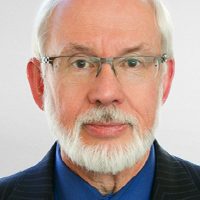Robert G. Eccles first joined the faculty in 1979 and received tenure in 1989. He left in 1993 to work in the private sector and rejoined the faculty in 2007. Right after receiving tenure, Professor Eccles started doing research on corporate reporting, a topic which remains of great interest to him from a research, managerial practice, and public policy perspective. He has written three books on this subject, The Value Reporting Revolution: Moving Beyond the Earnings Game (with Robert H. Herz, E. Mary Keegan and David M. H. Phillips), Building Public Trust: The Future of Corporate Reporting (with Samuel A. DiPiazza Jr.), and One Report: Integrated Reporting for a Sustainable Strategy (with Michael P. Krzus), which is the first book on this subject. One Report was the winner of the 2010 PROSE award in the category of Business, Finance, & Management. He is a member of the Steering Committee of the International Integrated Reporting Committee (http://www.integratedreporting.org/) and the Chairman of the Sustainability Accounting Standards Board (SASB) www.sasb.org. Dr. Eccles is the co-founder, with Professor George Serafeim of Harvard Business School, of the Innovating for Sustainability social movement (https://www.facebook.com/innovatingforsustainability).
Professor Eccles continues his active research program on integrated reporting. Within the past few years a new trend has begun for “integrated reporting” in which a company combines its financial and non-financial reports into “One Report” with varying degrees of integration. Examples of companies practicing integrated reporting in the United States are Southwest Airlines, American Electric Power, and United Technologies Corporation. Examples of companies in other countries include Philips in the Netherlands, BASF in Germany, Novo Nordisk in Denmark and Natura in Brazil. Of course, One Report doesn’t mean only One Report since the Internet can also be used to provide more detailed information and analytical tools of particular interest to different stakeholder groups. Importantly, integrated reporting is about more than a company’s external communications. It also involves leveraging the Internet to improve dialogue and engagement with all stakeholders.
In collaboration with Professor George Serafeim, Dr. Eccles teaches the MBA elective field course “Innovating for Sustainability” as well as the executive education program of the same name and the new executive education program “Building Client Management Capabilities in Professional Service Firms.” “Innovating for Sustainability” is focused on innovations in processes, products, and business models by both corporations and investors in order to improve both financial and sustainability (defined in terms of environmental, social, and governance issues) performance. Eccles and Serafeim also teach a doctoral seminar called “The Role of the Corporation in Society.” Together they have a broad and multimethod research program on how companies can create more sustainable strategies that contribute to a more sustainable society.
In collaboration with Professor Das Narayandas of Harvard Business School Dr. Eccles is also working on a book about professional service firms with the working title of Building Capabilities: Ensuring Long-Term Success in a Professional Service Firm. The key idea is that professional service firms need to balance short-term capacity utilization with long-term capability building. The latter is done at the individual and organizational level by properly managing the talent market and the client market in an integrated way.
In 2011, Dr. Eccles was selected as one of the Top 100 Thought Leaders in Trustworthy Business Behavior – 2012 for his extensive, positive contribution to building trust in business.
Dr. Eccles received an S.B. in Mathematics and an S.B. in Humanities and Science from the Massachusetts Institute of Technology (1973) and an A.M. (1975) and Ph.D. in Sociology (1979) from Harvard University.
